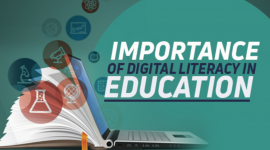In a world where academic performance and personal development are equally important, parents play an essential role in shaping both.
These parental insights—based on understanding, observation, and experience—play a critical role in molding a child’s behavior, learning habits, values, and overall character.
In this article, we explore how thoughtful and consistent parental insights contribute to both the educational success and the character formation of a child.
Understanding the Role of Parental Insights

Parental insights refer to a parent’s ability to understand their child’s needs, emotions, interests, and potential, and to act accordingly. These insights come from:
-
Observing patterns in the child’s behavior
-
Actively communicating and listening
-
Identifying strengths and areas of improvement
-
Providing emotional and academic support
When applied effectively, parental insights create a nurturing environment that encourages learning and builds strong moral values.
1. Building a Strong Educational Foundation

a. Identifying Learning Styles
Every child learns differently—some are visual learners, others are more auditory or kinesthetic. With the help of parental insights, parents can identify how their child grasps information best and work with teachers to personalize the learning process.
b. Encouraging Curiosity and Exploration
Parents who engage with their children’s questions and interests help cultivate a love for learning. Taking time to discuss topics, visit museums, read together, or explore new hobbies contributes to both intellectual and emotional growth.
c. Creating a Positive Learning Environment
A peaceful and supportive home encourages focus. Through small actions like setting a designated study area or maintaining a consistent routine, parental insights help create habits that lead to academic consistency.
2. Shaping Emotional Intelligence and Character

a. Teaching by Example
Children absorb values by observing their parents. Respect, kindness, empathy, and responsibility are traits best learned through modeled behavior. When parents demonstrate honesty or patience, children internalize these values in everyday life.
b. Instilling Discipline and Accountability
Discipline doesn’t mean punishment. It’s about teaching children the value of time, commitments, and boundaries. With the right parental insights, parents can guide their children without being overly strict, encouraging self-control and personal responsibility.
c. Supporting Emotional Growth
Understanding a child’s emotional needs is just as important as understanding academic ones. Parents who use emotional intelligence to guide conversations, support failures, and celebrate achievements help build resilience and confidence.
3. Balancing Academic Pressure and Mental Health

With rising competition and performance expectations, students often experience anxiety and burnout. This is where parental insights become essential.
a. Recognizing Signs of Stress
Parents must be attentive to changes in mood, sleep patterns, or motivation. Insightful parents notice these signs early and respond with empathy, offering emotional support or seeking professional help if needed.
b. Encouraging Breaks and Hobbies
Parents who encourage outdoor activities, sports, music, or art help children develop well-rounded personalities. It also provides a break from academic monotony and allows children to explore their creativity.
4. Communication: The Core of Parental Insight

Open and honest communication builds trust between parents and children. By asking questions, listening without judgment, and showing interest in their child’s world, parents gain deeper insights into what their child truly needs—both academically and personally.
5. Collaborating with Schools and Educators

Parental involvement in school activities, meetings, and feedback sessions allows parents to better understand their child’s academic progress. Teachers can offer external perspectives that enhance parental insights, leading to better support at home.
When parents and teachers work together, children feel more supported and are more likely to succeed academically and behave responsibly.
6. Long-Term Impact of Parental Insights

When applied consistently, parental insights help children grow into:
-
Independent thinkers
-
Emotionally intelligent individuals
-
Academically confident learners
-
Responsible youth, value-driven citizens
These long-term effects not only benefit the child but also contribute positively to society at large.
Conclusion
In a child’s journey toward academic success and character development, parents are the first and most influential guides. Parental insights—the ability to understand, empathize, and act with awareness—can shape the entire trajectory of a child’s life.
By fostering an environment of love, discipline, communication, and support, parents help their children unlock their full potential—not just in school, but in life. Whether it’s choosing the right learning path, managing emotions, or developing resilience, the power of parental insights cannot be overstated.









